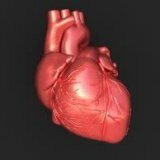Nervous disorders in children and their signs

In today's time, according to statistics, nervous disorders are diagnosed in children very often, and their age can be very different. Experts believe that of all school-age children, half of them can be seen signs of emotional instability. If parents have noticed nervous disorders in children and their signs, then they need to turn to a specialist-a neuropathologist-in this case it will be possible to establish an accurate diagnosis.
Most people heard the statements of parents that their children are nervous. Some deviations in behavior from the norm can be congenital in nature, this happens in children-neuropaths. It happens that deviations occur in the process of improper education, in severe trials or stressful situations that occurred very often - such deviations can already be called acquired. In nervous disorders, different parts of the brain, as well as the nervous system or the psyche as a whole, can be affected. Identify the existing disorder in a child and prescribe appropriate treatment can only be a qualified specialist.
Sometimes, if a person falls into a difficult situation for him, a neurotic reaction may occur, even in an adult, and the child in such positions is even more difficult. Some of the children may become locked in themselves, and someone, on the contrary, will arrange an incredible hysterics, while he will ride on the floor with tears in his eyes and shout loudly. If such behavior becomes normal for a child, then parents should look very carefully at their child. Because this behavior can judge a neurosis, which is necessary to treat only under the supervision of a doctor. Sometimes neuroses are expressed only by the manifestation of a single symptom: a nervous tic, stammering, enuresis, etc.
By a nervous tic is meant various unconscious movements. As a rule, it manifests itself in the form of twitching of the eyes or cheeks, movements of the hands can occur, there are sobs. The main reason for the appearance of a nervous tic is stress. You can see a nervous tic at a time when the child does not make meaningful actions when he is calm. If the child starts to play, then the signs of a nervous tic disappear.
Another symptom is insomnia. If a child is very restless in a dream or can not sleep for a long time, constantly turns around, then, most likely, this is a manifestation of a neurosis. At such times, other disorders can also occur, for example, talking or crying in a dream, frequent waking up.
If you punished a child, and after that he urinated on the bed, then he probably has an enuresis. This manifestation can also occur after a nervous shock or overexcitation. Children who suffer from such a disease are usually too tearful, capricious, and their mood is very unstable.
If parents put too much pressure on the child, trying to make a genius out of him, while constantly trying to speed up the process of speech development, then neurotic stammering may occur. This can happen in a stressful situation.
Sometimes children develop eating disorders, or anorexia in another way. It manifests itself in the form of loss of appetite. To cause such a disorder can do much. In the early childhood, as a rule, it happens because of forceful feeding of the child, and in the older, at teenage age - the desire to be slender.
It happens that nervous disorders of children can be provoked by their own loving parents. This happens if the parents are too zealous.
Here are some typical mistakes parents can make:
- high load for the child. If a child attends a lot of classes, then he does not have time for games and rest, so they are constantly in suspense. Among such children, the percentage of those who suffer from nervous disorders is quite high;
- excessive perseverance and diligence in correcting the deficiencies that, in their opinion, exist in the child;
- lack of love for the child;
- frequent scandals in the family that occur in front of the child
Knowing about all kinds of possible nervous disorders, each parent, if he notices their signs, must necessarily consult a neurologist.



